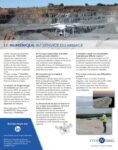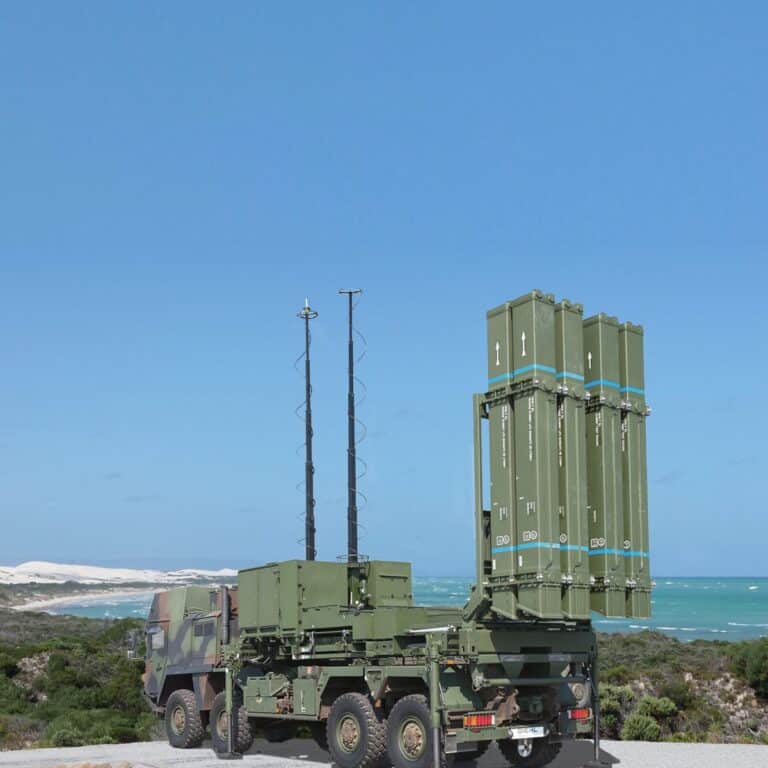In a world where security threats are becoming increasingly sophisticated, the role of defense security consultant is taking on unprecedented significance. Whether for governments, businesses, or international organizations, this profession proves crucial for anticipating and countering potential aggressions. To forge a career in this field, it is essential to understand the steps, the required skills, and the academic paths to follow. From acquiring specific knowledge to understanding geopolitical issues, becoming a security consultant demands rigorous preparation and total commitment.
Table des matières
ToggleThe necessary skills to become a defense security consultant
To embark on a career as a defense security consultant, a broad range of skills is necessary. These skills go beyond a simple understanding of security systems; they also include analytical, technical, and interpersonal qualities.

Technical skills
A security consultant must possess solid technical knowledge. This includes understanding surveillance systems, cryptographic technologies, and data analysis methods. Certifications such as those offered by Thales, Safran, or Airbus Defence and Space prove very useful for validating technical skills. Acting wisely in the face of cybercrime involves in-depth knowledge of networks and security software.
Analytical and problem-solving skills
Risk assessment requires developed analytical skills. The consultant must be able to identify vulnerabilities within an organization and formulate effective strategies to mitigate them. For example, a company like General Dynamics is often looking for graduates capable of providing accurate analyses and concrete solutions.
Interpersonal skills
The role of a security consultant also involves effectively communicating recommendations to clients. This means being able to present technical concepts clearly while establishing a trust-based relationship. A consultant must also collaborate with various stakeholders, including government agencies, private companies, and regulatory bodies. The ability to work in a multidisciplinary environment is crucial.
Education and certifications
To rise to the rank of defense security consultant, the academic pathway is crucial. A degree in political science, international relations, or engineering is often required. Additionally, many schools, such as those at Dauphine-PSL, offer specialized programs that teach security methods and current geopolitical issues. A complementary option may include internships within large groups such as Boeing Defense or Naval Group. These internships not only provide enriching experience but also an active professional network.
- Required degrees: Master’s in security or defense
- Important certifications: Thales, Safran
- Practical experiences: Internships with defense companies
| Skills | Importance | Application examples |
|---|---|---|
| Technical | Essential | Analysis of security software |
| Analytical | Crucial | Assessment of potential threats |
| Interpersonal | Necessary | Communication of recommendations |
Gaining key experience in the security field
Once theoretical skills are acquired, the next step is to accumulate practical experience in the defense security field. This process is often lengthy and requires careful planning.

Internships and early experiences
Internships are a valuable entry point into the sector. Working for companies like Krevot or the French Railways, which require heightened security vigilance, allows one to familiarize themselves with the environment while testing their skills on the ground. These early experiences provide a concrete view of the challenges a security consultant faces. By completing an internship, graduates can validate their expertise and enhance their CV.
Entry-level jobs
After obtaining a degree and completing internships, moving to entry-level positions such as a security assistant is a common path. In these roles, individuals can collaborate with experienced consultants and learn directly from experts. This helps build a professional network and develop practical skills. Companies like FN Herstal and DCNS often recruit candidates for various entry-level positions, thus creating a bridge to more significant responsibilities.
Continuing education and specialization
In the security field, ongoing training is absolutely necessary. New threats and technologies emerge regularly, making it essential to update knowledge. Participating in seminars, conferences, or accredited training is an excellent way to stay current. Additionally, specializations can be considered in many areas, such as cybersecurity or critical infrastructure security.
- Importance of internships: Accumulation of experience
- Networking: Establishing professional connections
- Continuing education: Staying up to date with industry trends
| Type of experience | Typical duration | Key components |
|---|---|---|
| Internship | 3-6 months | Practical training, supervision |
| Entry-level position | 1-3 years | Teamwork, mentoring |
| Continuing education | Variable | Courses, certifications, seminars |
Career opportunities in defense security
Once trained and rich in experience, a defense security consultant can consider various career paths. The sector offers a multitude of dynamic and diverse opportunities.

Fields of expertise
Consultants can specialize in particular areas such as cybersecurity, physical security, or crisis management. Each specialization has its own requirements and challenges. For example, a cybersecurity consultant might work on vulnerabilities within information systems, while a physical security consultant will focus on essential infrastructures.
Defense companies
Prestigious companies like Thales, Safran, and Airbus Defence and Space are actively seeking qualified professionals. This opens doors to large-scale projects, ranging from cyber defense to the management of complex security systems. It is common for consultants to be deployed in international missions where they will need to analyze complex geopolitics and advise the authorities.
Independent consultants
For those seeking more freedom, working as an independent consultant is an option. Although this requires solid experience as well as a well-established professional network, it allows for work on diverse projects, offering flexibility and autonomy. However, it requires an effective marketing strategy to attract potential clients, who may be private or public companies.
- Job opportunities: Defense companies, government agencies
- Independent consultants: Freedom and diversity of projects
- Specializations offered: Cybersecurity, physical security, crisis management
| Type of position | Potential employer | Fields of expertise |
|---|---|---|
| Cybersecurity consultant | Thales, Airbus | Data protection |
| Physical security consultant | Safran, Boeing Defence | Surveillance systems |
| Independent consultant | Various companies | Global security strategy |
Salary evolution and career prospects
Finally, it is important to note the financial aspects and the prospects for advancement in this field. After a rigorous training and accumulation of professional experience, the compensation can be very attractive.
Starting salaries
The salary of a defense security consultant at the beginning of their career can vary, but it is generally between 35,000 and 50,000 euros per year, depending on experience, region, and company. Large companies like Naval Group and FN Herstal, due to their reputation and expertise, tend to offer more competitive salaries.
Possible advancements
As experience accumulates, consultants can expect significant salary increases. Senior consultant or security manager positions are common in career progression. A senior consultant can earn between 60,000 and 90,000 euros per year, or even more in specialized profiles.
The job market in 2025
With the constant increase of cyber threats and geopolitical changes, the demand for defense security consultants is expected to grow. Companies will increasingly seek to strengthen their security measures, which will open even more career opportunities. In 2025, the sector is expected to continue diversifying, thus creating new market niches to exploit.
- Attractive starting salary: Between 35,000 and 50,000 euros
- Possibility of high salary: Between 60,000 and 90,000 euros for seniors
- Growing market: Strong demand expected for the coming years
| Experience level | Estimated annual salary | Career progression |
|---|---|---|
| Beginner | 35,000 – 50,000 € | Junior consultant |
| Confirmed | 60,000 – 90,000 € | Senior consultant |
| Expert | 90,000 € and above | Security manager |






















